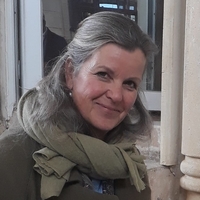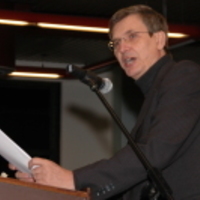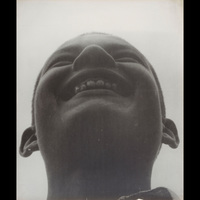Book Chapters by Matthew Travis Barber
Yezidism: Between Continuity and Transformation, 2022
The few works on the Yezidi Genocide that have appeared thus far have mainly focused on the viole... more The few works on the Yezidi Genocide that have appeared thus far have mainly focused on the violence perpetrated against the Yezidis and no work has attempted the construction of a general historical narrative covering the essential political dimensions of the Genocide and its aftermath. This chapter begins to address this need by providing a basic chronology and description of pivotal episodes in the political history of the Yazidi Genocide.
Beyond ISIS: History and Future of Minorities in Iraq, 2019
A significant movement of apostasy from Islam is underway in the Middle East, one that is simulta... more A significant movement of apostasy from Islam is underway in the Middle East, one that is simultaneously birthing a new religious minority. Kurdistan is experiencing a gradually intensifying revival of Zoroastrianism as increasing numbers of Kurds are converting to the tradition or affiliating with it at varying levels.

Christianity and Freedom, Volume 2: Contemporary Perspectives, 2016
Barber, Matthew. "They That Remain: Syrian and Iraqi Christian Communities amid the Syria Conflic... more Barber, Matthew. "They That Remain: Syrian and Iraqi Christian Communities amid the Syria Conflict and the Rise of the Islamic State." In Christianity and Freedom, Volume 2: Contemporary Perspectives. Edited by Allen D. Hertzke and Timothy Samuel Shaw. New York: Cambridge University Press, 2016.
This chapter discusses the recent status of Christian communities in Iraq and Syria, providing historical background and then focusing on the seismic events that transpired from 2011 through 2014. Sections deal with historical context for Iraqi and Syrian Christians, the experience of Christians in the Syria conflict, the origins of the Islamic State (IS/ISIL) organization, the experience of Christians under IS control, the expulsion of Mosul's Christians, factors behind the inability of Christians in Mosul to accept a jizya arrangement under IS rule, and prospects for Christian survival in these two countries.
Papers by Matthew Travis Barber
This article is a German translation of an English original ("The KRG’s Relationship with the Yaz... more This article is a German translation of an English original ("The KRG’s Relationship with the Yazidi Minority and the Future of the Yazidis in Shingal") that was published by NRT, a Kurdish media outlet in Iraqi Kurdistan, on January 31, 2017. This German version was translated by ÊzîdîPress and published February 16, 2017.
This article is the Arabic translation (with minor modifications approved by the author) of an En... more This article is the Arabic translation (with minor modifications approved by the author) of an English original ("The KRG's Relationship with the Yazidi Minority and the Future of the Yazidis in Shingal") that was published by NRT, a Kurdish media outlet in Iraqi Kurdistan, on January 31, 2017. This Arabic translation was published by NRT on March 19, 2017. Both versions are available on Academia.edu and also appear on the NRT website.
This article was originally published by NRT, a Kurdish media outlet in Iraqi Kurdistan, on Janua... more This article was originally published by NRT, a Kurdish media outlet in Iraqi Kurdistan, on January 31, 2017. It deals with the Yazidi political situation two and a half years following the Yazidi Genocide (August 3, 2014)—specifically with local political problems that inhibit Yazidi recovery and endanger the future of Yazidis in the country. Most importantly, the KDP-implemented economic blockade of Sinjar is explained. Some points regarding the security failure that allowed the Genocide to occur are also touched on.
Special Reports by Matthew Travis Barber
Assyrian Confederation of Europe, 2017
A number of serious abuses that victimize the Assyrian people are underway in their homeland but ... more A number of serious abuses that victimize the Assyrian people are underway in their homeland but are not widely known among those in the international community who have a concern for the welfare of minorities in Iraq. This report endeavors to raise awareness about these human rights violations and about the political dynamics that seek to deliberately undermine Assyrian efforts to develop a stable framework of local administration and security in the Nineveh Plain. Themes that are dealt with include efforts to annex disputed territories to the Kurdistan Region of Iraq; theft of Assyrian land; efforts to undermine democratic political structures within the Assyrian community (divide and conquer tactics); political violence, extortion, and intimidation of Assyrians by the KDP asaish (secret police).
This report was issued Jan. 28, 2016 and contains the first published mapping of mass graves of Y... more This report was issued Jan. 28, 2016 and contains the first published mapping of mass graves of Yazidis killed in Sinjar, Iraq during the Yazidi Genocide of 2014. The report was written by Matthew Barber (then Executive Director of Yazda Iraq) with research data procured by Yazda's genocide documentation team (led by Andrew Slater and Ali Khalaf). The report was released in conjunction with a statement from Human Rights Watch:
https://www.hrw.org/news/2016/01/30/iraq-protect-mass-graves
As Editor by Matthew Travis Barber

Assyrian Policy Institute, 2018
Authored by Reine Hanna and Max J. Joseph, edited by Matthew Barber.
A loophole in Iraqi electora... more Authored by Reine Hanna and Max J. Joseph, edited by Matthew Barber.
A loophole in Iraqi electoral law has left the voting process for the election of the Christian MPs who will fill the seats reserved by the quotas open to non-Christian voters, which enables powerful non-Christian parties to exploit the quota system. This negative trend has been detrimental to Assyrian interests from the establishment of the quota system. The same problem also afflicts the parliamentary elections of Iraqi Kurdistan. Deliberate interference of the Kurdistan Democratic Party and the Badr Organization in the 2018 Iraqi parliamentary elections for Christian representatives, which included the methodical mobilization of tens of thousands of non-Christian voters,
means this election cannot possibly reflect the will of the Christian Assyrian community in Iraq. Through the strategy of creating and controlling Christian Assyrian proxy organizations—generally by rewarding loyalty with resources unavailable to independent
Christian Assyrian parties—the Kurdistan Democratic Party was able to capture two of the five quota seats reserved for Christians. The Badr Organization, an Iranian-backed Shia Arab group operating militarily and politically across Iraq, also secured two of the five seats through the Babylon Movement, a nominally Christian, Muslim group used to extend and superficially diversify Badr’s presence in the north of the country.
The absence of laws to protect the spirit and purpose of the Christian quota system—first by mandating that only Christian voters can
select their representatives, and second by prohibiting the use of financial patronage by dominant groups to colonize the political
landscape of marginalized ethno-religious populations—has therefore resulted in the near-complete elimination of independent Christian Assyrian political representation in Iraq’s 2018 parliamentary elections. As a result of the 2018 elections, Assyrians have been effectively excluded from the political process in Iraq. Multi-dimensional
interventions are required to overcome political exclusion, including: legally binding and monitored measures such as legislative reforms and community education initiatives designed to overcome deep-seated,
systemic and institutional obstacles to the inclusion of marginalized groups in decision-making.











Uploads
Book Chapters by Matthew Travis Barber
This chapter discusses the recent status of Christian communities in Iraq and Syria, providing historical background and then focusing on the seismic events that transpired from 2011 through 2014. Sections deal with historical context for Iraqi and Syrian Christians, the experience of Christians in the Syria conflict, the origins of the Islamic State (IS/ISIL) organization, the experience of Christians under IS control, the expulsion of Mosul's Christians, factors behind the inability of Christians in Mosul to accept a jizya arrangement under IS rule, and prospects for Christian survival in these two countries.
Papers by Matthew Travis Barber
Special Reports by Matthew Travis Barber
https://www.hrw.org/news/2016/01/30/iraq-protect-mass-graves
As Editor by Matthew Travis Barber
A loophole in Iraqi electoral law has left the voting process for the election of the Christian MPs who will fill the seats reserved by the quotas open to non-Christian voters, which enables powerful non-Christian parties to exploit the quota system. This negative trend has been detrimental to Assyrian interests from the establishment of the quota system. The same problem also afflicts the parliamentary elections of Iraqi Kurdistan. Deliberate interference of the Kurdistan Democratic Party and the Badr Organization in the 2018 Iraqi parliamentary elections for Christian representatives, which included the methodical mobilization of tens of thousands of non-Christian voters,
means this election cannot possibly reflect the will of the Christian Assyrian community in Iraq. Through the strategy of creating and controlling Christian Assyrian proxy organizations—generally by rewarding loyalty with resources unavailable to independent
Christian Assyrian parties—the Kurdistan Democratic Party was able to capture two of the five quota seats reserved for Christians. The Badr Organization, an Iranian-backed Shia Arab group operating militarily and politically across Iraq, also secured two of the five seats through the Babylon Movement, a nominally Christian, Muslim group used to extend and superficially diversify Badr’s presence in the north of the country.
The absence of laws to protect the spirit and purpose of the Christian quota system—first by mandating that only Christian voters can
select their representatives, and second by prohibiting the use of financial patronage by dominant groups to colonize the political
landscape of marginalized ethno-religious populations—has therefore resulted in the near-complete elimination of independent Christian Assyrian political representation in Iraq’s 2018 parliamentary elections. As a result of the 2018 elections, Assyrians have been effectively excluded from the political process in Iraq. Multi-dimensional
interventions are required to overcome political exclusion, including: legally binding and monitored measures such as legislative reforms and community education initiatives designed to overcome deep-seated,
systemic and institutional obstacles to the inclusion of marginalized groups in decision-making.
This chapter discusses the recent status of Christian communities in Iraq and Syria, providing historical background and then focusing on the seismic events that transpired from 2011 through 2014. Sections deal with historical context for Iraqi and Syrian Christians, the experience of Christians in the Syria conflict, the origins of the Islamic State (IS/ISIL) organization, the experience of Christians under IS control, the expulsion of Mosul's Christians, factors behind the inability of Christians in Mosul to accept a jizya arrangement under IS rule, and prospects for Christian survival in these two countries.
https://www.hrw.org/news/2016/01/30/iraq-protect-mass-graves
A loophole in Iraqi electoral law has left the voting process for the election of the Christian MPs who will fill the seats reserved by the quotas open to non-Christian voters, which enables powerful non-Christian parties to exploit the quota system. This negative trend has been detrimental to Assyrian interests from the establishment of the quota system. The same problem also afflicts the parliamentary elections of Iraqi Kurdistan. Deliberate interference of the Kurdistan Democratic Party and the Badr Organization in the 2018 Iraqi parliamentary elections for Christian representatives, which included the methodical mobilization of tens of thousands of non-Christian voters,
means this election cannot possibly reflect the will of the Christian Assyrian community in Iraq. Through the strategy of creating and controlling Christian Assyrian proxy organizations—generally by rewarding loyalty with resources unavailable to independent
Christian Assyrian parties—the Kurdistan Democratic Party was able to capture two of the five quota seats reserved for Christians. The Badr Organization, an Iranian-backed Shia Arab group operating militarily and politically across Iraq, also secured two of the five seats through the Babylon Movement, a nominally Christian, Muslim group used to extend and superficially diversify Badr’s presence in the north of the country.
The absence of laws to protect the spirit and purpose of the Christian quota system—first by mandating that only Christian voters can
select their representatives, and second by prohibiting the use of financial patronage by dominant groups to colonize the political
landscape of marginalized ethno-religious populations—has therefore resulted in the near-complete elimination of independent Christian Assyrian political representation in Iraq’s 2018 parliamentary elections. As a result of the 2018 elections, Assyrians have been effectively excluded from the political process in Iraq. Multi-dimensional
interventions are required to overcome political exclusion, including: legally binding and monitored measures such as legislative reforms and community education initiatives designed to overcome deep-seated,
systemic and institutional obstacles to the inclusion of marginalized groups in decision-making.